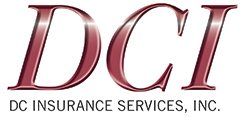Does this scenario sound familiar? You’ve done your research and planning and are all ready to open a family child care in your home only to be told by your landlord or HOA that you cannot use the home for business purposes. Or how about this? You currently run a family child care, but you constantly wonder whether it’s worth the headache you get from your landlord or HOA on a regular basis.
If you’ve been in either of these situations, you are not alone. These are very common issues for child care providers who rent or answer to a homeowners’ association. Many landlords and HOAs fear the liability that may come with having a child care business on their property. They may also be concerned about excess wear and tear or noise complaints from neighbors. However, there are some ways in which you can reduce their fears and ease the tension between them and you.
Business Use
Many landlords and homeowners’ associations have clauses which prohibit the use of their residences for business purposes. When you notify them that you are opening a family child care in your home, they may tell you that this is considered business use and that it is a violation of your lease or agreement.
However, in several states, such as New York and California, running a legal child care out of your home is not considered by the state to be business use of the home, and your landlord or HOA cannot prohibit you from doing so. Because of the high need for child care, many states protect child care providers and consider child care an asset to a neighborhood. Laws vary from state to state, so it is definitely a good idea to call your state’s child care licensing or housing department to find out if you have some protection.
Liability
The main concern most landlords and HOAs have with their tenants running a child care is the liability that may come with it. They are afraid that, in the event of an injury on the property, they will be sued. While this rarely happens in child care lawsuits, it is a valid concern. However, you can easily alleviate this concern in one simple step.
If you carry liability insurance for your child care business (and you absolutely should), you can add your landlord or HOA onto your policy as an additional insured. This will protect them in the unlikely event that a parent sues them for an injury sustained by a child while in your care. Once your landlord or HOA has a certificate of insurance naming them as an additional insured on your policy, they will most likely feel more comfortable with the idea of having a child care on their property.
Wear and Tear
Another concern your landlord or HOA may have is the anticipated wear and tear on the home. If you explain to them that you are required by licensing to keep your home up to a certain standard and that the wear and tear will be no more than it would be from a large family, you may be able to ease their minds on this matter. You can also discuss with them what their exact concerns are or if there is one part of the home they are more worried about than another. You can then make an agreement with them not to use a certain area for child care or to be careful of any specific issues they are concerned with.
Noise and Traffic
If you have neighbors nearby, your landlord or HOA will most likely be concerned about noise complaints and high traffic to your home. Once again, communication with them should help resolve some of these issues. You can let your landlord or homeowners’ association know how many parents will be coming and going and approximately what times they will be there. This way they understand that there won’t be tons of people coming and going all day long.
You can also limit the areas where parents can park and make it clear in your child care policies that parents cannot use any other parking spots. Let parents know that they must keep noise levels down when they come to your home to pick up or drop off. As far as the noise level from the children, it shouldn’t be any louder than it would be if a large family were living in the home. Communicate all of this clearly with your landlord or HOA, and they will most likely feel less anxious.
While it can be stressful to open a child care when you are dealing with a landlord or a homeowners’ association, many providers are able to do it by following all of these steps. The most important thing you can do is to communicate clearly with landlords, HOAs, licensing analysts, and insurance agents to make sure everyone knows exactly what is going on. Most of the tension that providers experience comes from misunderstandings about what running a family child care actually entails.


